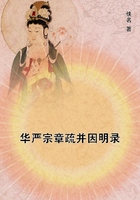The book was in such complete accord with the absolutist tendencies of the age that it was received with applause by the civil rulers, and by the court canonists, theologians, and lawyers, who saw in it the realisation of their own dreams of a state Church subservient to the civil ruler. The book was, however, condemned by Clement XIII. (1764), who exhorted the German bishops to take vigorous measures against such dangerous theories. Many of the bishops were indifferent; others of them were favourable to von Hontheim's views; but the majority suppressed the book in their dioceses. Several treatises were published in reply to Febronius, the most notable of which were those form the pen of Ballerini and Zaccaria. New editions of the work of Febronius were called for, and translations of the whole or part of it appeared in German, Italian, French, Spanish, and Portuguese. It was received with great favour in Austria, where the principles of Febronius were adopted by most of the leading court canonists. At a meeting held in Coblenz (1769) the three Prince-bishops of Mainz, Trier, and Cologne presented a catalogue of complaints (/Gravamina/)against the Roman Curia, many of which were extracted from or based upon the work of Hontheim. After repeated appeals of the Pope to the Prince-bishop of Trier to exercise his influence upon von Hontheim, the latter consented to make a retractation in 1778, but his followers alleged that the retractation having been secured by threats was valueless. This contention was supported by a commentary published by Hontheim in explanation of his retractation, in which he showed clearly enough that he had not receded an inch from his original position. Before his death in 1790 he expressed regret for the doctrine he put forward, and died in full communion with the Church.
The teaching of Febronius, paving the way as it did for the supremacy of the State in religious matters, was welcomed by the Emperor Joseph II., by the Elector of Bavaria, as well as by the spiritual princes of the Rhine provinces. In Austria, especially, violent measures were taken to assert the royal supremacy. Joseph II. was influenced largely by the Gallican and liberal tendencies of his early teachers and advisers. He dreamed of making Austria a rich, powerful, and united kingdom, and becoming himself its supreme and absolute ruler. During the reign of his mother, Maria Theresa, he was kept in check, but after her death in 1780, in conjunction with his prime minister, Kaunitz, he began to inaugurate his schemes of ecclesiastical reform.
He insisted upon the Royal /Placet/ on all documents issued by the Pope or by the bishops, forbade the bishops of his territories to hold any direct communication with Rome or to ask for a renewal of their faculties, which faculties he undertook to confer by his own authority. He forbade all his subjects to seek or accept honours from the Pope, insisted upon the bishops taking the oath of allegiance to himself before their consecration, introduced a system of state-controlled education, and suppressed a number of religious houses. In order that the clergy might be instructed in the proper ecclesiastical principles, he abolished the episcopal seminaries, and established central seminaries at Vienna, Pest, Louvain, Freiburg, and Pavia for the education of the clergy in his dominions. Clerical students from Austria were forbidden to frequent the /Collegium Germanicum/ at Rome lest they should be brought under the influence of ultramontane teaching. Even the smallest details of ecclesiastical worship were determined by royal decrees. In all these reforms Joseph II. was but reducing to practice the teaching of Febronius.
By personal letters and by communications through his nuncio Pius VI.
sought to induce Joseph II. to abstain from such a policy of state aggression; but, as all his representations were ineffective, he determined to undertake a journey to Vienna, in the hope that his presence might bring about a change in the policy of the Emperor, or at least stir up the bishops to defend the interests of the Church (1782). He arrived at Vienna, had frequent interviews with the Emperor and with his minister Kaunitz, and was obliged to leave without any other result, except that he had assured himself of the fact that, whatever about the Emperor or the bishops, the majority of the people of Austria were still loyal to the head of the Catholic Church. The following year (1783) Joseph II. paid a return visit to Rome, when he was induced by the representations of the Spanish ambassador to desist from his plan of a complete severance of Austria from the Holy See.
Joseph II. had, however, proceeded too quickly and too violently in his measures of reform. The people and the large body of the clergy were opposed to him as were also the Cardinal-Archbishop of Vienna, the bishops of Hungary, and the bishops of Belgium under the leadership of Cardinal Frankenberg. The state of affairs in the Austrian Netherlands became so threatening that the people rose in revolt (1789), and Joseph II. found himself obliged to turn to the Pope whom he had so maltreated and despised, in the hope that he might induce the Belgian Catholics to return to their allegiance. He promised to withdraw most of the reforms that he had introduced, but his repentance came too late to save the Austrian rule in the Netherlands. He died in 1790 with the full consciousness of the failure of all his schemes.















